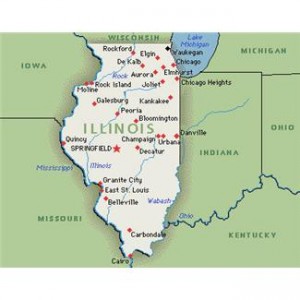Trial judge rather than trial lawyer error leads to big verdict against immigration lawyer
by Christopher Graham and Joseph Kelly
Your client is a Chinese national convicted of domestic violence. The US Immigration and Naturalization Service wants to deport him. You represent him for 4 to 5 months. He replaces you. There’s an INS hearing. The judge denies his asylum request. He hires more lawyers. His domestic violence conviction is vacated. But he spends 2 years in INS detention before then. So he sues you for legal malpractice. He alleges emotional distress, humiliation, physical abuse, isolation, pain and suffering, loss of education and loss of income. Prison was no country club.
You notify your malpractice insurer. It retains counsel to defend you. Your lawyer moves for summary judgment: non-economic damages aren’t recoverable in an Illinois legal malpractice suit. Motion denied. Your lawyer moves to exclude evidence of non-economic damages at trial. Motion denied. Your former client presents evidence only on damages for emotional distress, loss of normal life, psychological damages, and cost of future psychological care. Your lawyer asks for a jury instruction that damages for noneconomic harm can’t be awarded. Motion denied. Your lawyer moves for a directed verdict. No, no and no, says court! And then . . .
The jury whacks you big time — $4 million, for the asylum seeker, your former client. And you get to pay, unless there’s enough insurance. Time for a new lawyer or two, you say–for post-trial and asset discovery proceedings. So you get one, paid by your insurer, and another, paid by you.
New lawyer moves for a remittitur, reducing the judgment to $1 million. Motion granted! Wow, this judge finally rules your way. That’s better than $4 million, but still a lot of $$$. And your former client rejects it. New lawyer moves for judgment notwithstanding the verdict or for a new trial. Denied. Back to normal. You appeal. Your former client appeals.
After the appeal plays out, you get relief: your former client had no right to noneconomic damages. The Illinois Supreme Court denies further review. All’s well that ends well?
Not quite. You’re unhappy. Time. Money. Heartache. A terrible experience. Blame your lawyer. You got blamed. It’s your turn. He told your insurer about settlement offers, but not you, you think. He had a conflict of interest because the insurer appointed him, you think. This should never have gone to trial. It should have settled. So what do you do? Hire a lawyer. Sue your trial lawyer. File a complaint. Amend. Amend. Amend.
But the court dismisses your amended complaints with prejudice. You appeal. More litigation. Who wins? Not you, says the court in a case generally along those lines known as Huang, et al v. Brenson, et al, Caes No. 1-12-3231 (1st Dist. Mar. 5, 2014).
Why? The verdict wasn’t your lawyer’s fault. It was the circuit judge’s fault. Your trial lawyer did the right things. Move for summary judgment. Move in limine. Move for a jury instruction limiting damages. Move directed verdict. He was right. Noneconomic damages aren’t recoverable for legal malpractice. The judge was wrong. And your trial lawyer didn’t do anything to contribute to the judge’s error. You were vindicated on appeal because of your lawyer’s efforts to preserve the damages issue in the circuit court. Based on the undisputed facts and as a matter of law, he didn’t proximately cause any harm you claim.
But what about the settlement offers he didn’t tell you about, as alleged in your amended complaint? Yes, a failure to communicate offers “is typically considered a breach of fiduciary duty.” But you must allege facts showing the breach was the proximate cause of the harm you claim. And you didn’t. You didn’t allege you were willing or able to pay the alleged settlement offers. Or that your insurer would have done so. Or that you could have forced your insurer to do so. You don’t even allege the demands were reasonable or facts showing they were reasonable. There are no facts alleged showing trial could have been avoided.
It’s over! And there’s no cause of action against judges who make mistakes. Even if they’re big ones. Judicial immunity!
Funny thing, this is the second case we’ve reported on recently (see here) where lawyers were sued, but escaped liability because it was the judge not the lawyer that erred.
Tags: Illinois, legal malpractice, lawyers malpractice, 2-615, 2-619, non-economic damages, proximate cause, judicial error, judge error, superseding cause, psychological injury, emotional distress, pain and suffering
Category: Lawyers Malpractice Digest One comment »


April 10th, 2014
Thank you for the most accurate recitation of the facts and law that I have seen. One point, however, my client was informed of each settlement demand. We had emails communicating the demands, and one of the demands took place during the course of a pretrial with the judge. Since the case did not get past the pleadings stage, we did not reach the merits. Even if you usually communicate by telephone, confirm in writing every demand or offer you receive or make.